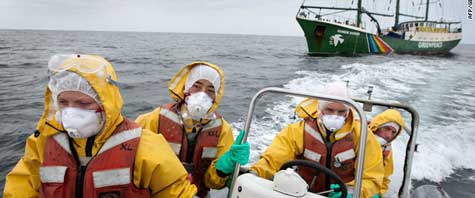
A recent report by Greenpeace directly contradicts Japanese government assurances that the radiation in the water near the crippled Fukushima nuclear plant is being dispersed and diluted over time. Significant levels of radioactive contamination have been recorded in local seafood.
Greenpeace: Japan nuclear plant radiation accumulating in marine life
Radiation from Japan’s damaged Fukushima Daiichi nuclear plant is accumulating in marine life off Japan’s coast above legal limits for food contamination, Greenpeace said Thursday.
The environmental group said its findings run counter to Japanese government reports that radiation from the Fukushima plant, damaged in the March 11 earthquake and tsunami, is being diluted as time passes.
“Despite what the authorities are claiming, radioactive hazards are not decreasing through dilution or dispersion of materials, but the radioactivity is instead accumulating in marine life,” Greenpeace radiation expert Jan Vande Putte said in a press release.
Greenpeace said its teams collected samples of marine life along the Fukushima coast and in international waters outside Japan’s 12-mile territorial limit. The samples were tested by nuclear research laboratories in France and Belgium, and high levels of radioactive iodine and cesium were found, it said.
Fish, shellfish and seaweed all showed significant levels of radioactive contamination, according to Greenpeace. All are widely consumed in Japan. Besides consumers, fishermen are at risk from the elevated radiation levels, Greenpeace said.
Thanks to Phil Leon for passing the article along.
